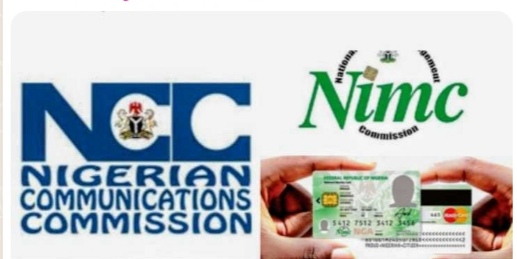It has now become a necessity to be careful who you permit to use your phone with your SIM, as whatever is done with your SIM can be easily known. This is because, the Nigerian Communications Commission (NCC), has completed the implementation of the federal government’s policy to link all phone numbers in the country to a national identification number (NIN).
At the the 2024 annual corporate governance conference held in Lagos on Thursday, Aminu Maida, the executive vice-chairman (EVC), of the NCC, made this statement.
Maida acknowledged bottlenecks faced by Nigerians during the exercise, while stressing the significance of the concluded NIN-SIM linkage initiative.
“Though it was a bit painful for Nigerians, I think we also need to appreciate what that does for us.
“Today, there is no phone number that we cannot associate with a verified NIN. Not just a number, but a number that has been verified.”
Maida said while some may question the authenticity of the linked identities, the initiative is an important starting point for accountability.
“If this phone number is involved in fraud or any crime, I can now authoritatively say, based on the NIN linked to it, this is the person who is using that phone number,” he said.
The NIN-SIM linkage policy began in December 2020, following a federal government directive to telecommunication companies to block unregistered SIM cards and those not linked to NINs.
Prior to the success recorded, the NCC had struggled to implement the policy as it consistently revised the deadline many times to allow Nigerians to comply with the directive.
On August 28, the agency announced September 14 as the “final deadline” for the NIN-SIM linkage exercise after an attempt to block unlinked lines in July triggered violence in some parts of the country.
Speaking further at the event, Maida said the commission is partnering with the Central Bank of Nigeria (CBN), to establish a robust framework that will address fraud-related issues associated with mobile financial transactions.
He said mobile channels are increasingly becoming the primary means for banking transactions, whether through mobile apps or USSD codes.
The NCC EVC acknowledged the existing challenges within the system and noted that there are insufficient consequences when a phone number is used to commit fraud.
“A lot of the time, the channels for financial services are your mobile and it comes down to that phone number that is used to either perform a banking transaction over a mobile app or a USSD transaction,” Maida said.
“Today, we have to admit where we are. We could do a lot better, because there are not very strong consequences when a phone number is used to perpetrate fraud.”
The NCC chief said the same phone number involved in financial fraud could potentially be used for fraudulent activities in other sectors, such as pensions, adding that it is an area the commission is looking to focus on.



